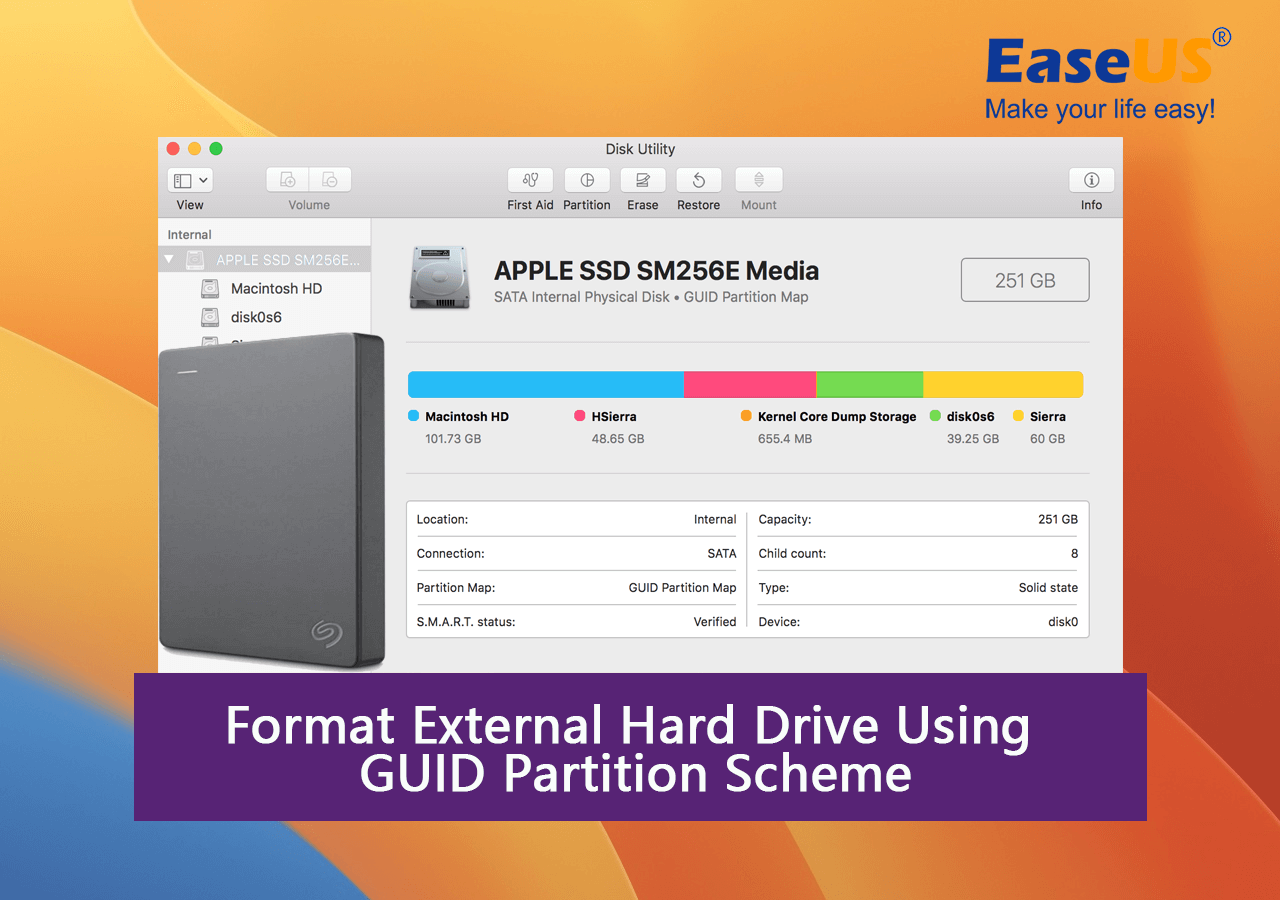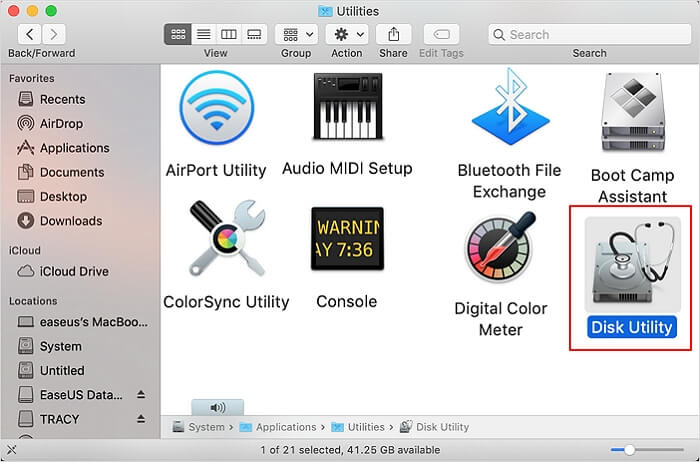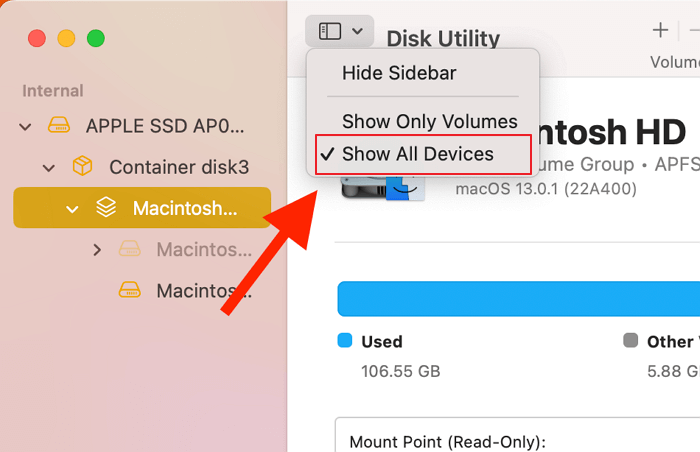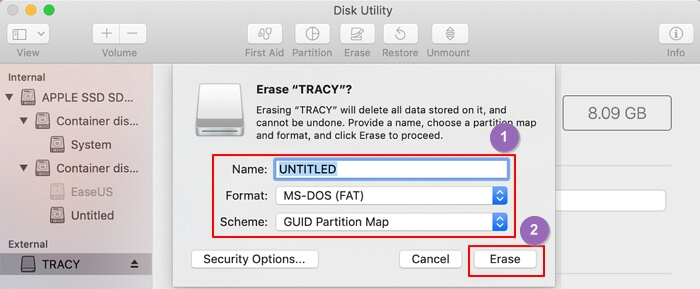In this article, you'll learn:
- What Is a GUID Partition Scheme?
- Should I Use GUID Partition Map, Apple Partition Map Scheme, or Master Boot Record?
- When Should I Format a Disk Using GUID Partition Map Scheme?
- How Do You Format the External Disk Using Scheme of GUID Partition Map?
Do you want to change the partition scheme to GUID from your previous partition scheme? If you're reading this article, then you're searching for this, and it is obvious that you don't know how to do it. But you know what? I know how to do it, and I'm going to show you step-by-step how you format the external disk using that GUID partition map.

Continue reading to change the partition scheme to a GUID partition map!
What Is a GUID Partition Scheme?
To use a hard drive, you need to partition it. MBR was the default for decades until the hard drive's storage capacity crossed 2 TB. The MBR can only support hard disks up to 2 TB in size.
The GUID partition scheme's limit is much higher compared to MBR, with support for a hard drive size of 9400000000 TB, and for users to create unlimited partitions. The GUID doesn't have any limitations by itself; the only limitation can be on the OS side. Although GUID is capable of storing unlimited partitions, it also depends on the operating system and the limit it has set.
Also, the GUID partition scheme stores the boot and partitioning data across the hard drive, so even if your drive crashes, your data is still easily recoverable.
Should I Use GUID Partition Map, Apple Partition Map Scheme, or Master Boot Record?
You can't use an Apple partition Map scheme on your Windows computers because it is proprietary to Apple. Also, Intel-based Apple Macs are better off with a GUID partition map scheme.
If it is a PowerPC-based Mac, the Apple Partition Map scheme is a better choice.
Since PowerPC Macs have been replaced by Apple with Intel, and then by its own silicon, the answer to the question of which is best between GUID Partition Map, Apple Partition Map scheme, and Master Boot Record is the GUID Partition Map scheme.
Both the latest Windows and Mac computers use the GUID partition map scheme for their hard disks without exception. Even the SSDs or hard drives that are smaller than 2TB are using the GUID partition map scheme for their hard drives for many other advantages, like easy data recovery and more.
When Should I Format a Disk Using GUID Partition Map Scheme?
If you are upgrading your hard drive and it is over 2 TB, you need to format it using the GUID partition map scheme.
Another reason to change the partition scheme of the drive is if you want to format the disk with exFAT file system or if you want to make the target disk bootable.
How Do You Format the External Disk Using Scheme of GUID Partition Map?
Before you convert your drive's partition table from MBR to GPT, backup all your hard drive's content to an external hard drive. And before you backup all your files to an external hard drive, convert the external hard drive to GUID first.
Now, to format both your external hard drive and your computer's hard drive, check out the below section. We tell you how you can format your drive with a GUID partition table.
Guide 1: Format External Hard Drive Using GUID Partition Map Scheme on Mac
Most Apple Mac hard disks are GUID formatted, but if you want to change your external hard drives' partition table, here's how to do that:
Step 1. Connect your external drive to your Mac.
Step 2. Open "Disk Utility."

Step 3. Now, on the top-left corner, click on "View" and select "Show all devices."

Step 4. Select the drive that you want to format.
Step 5. Now click on "Erase," give the drive a name, change the format to "exFAT" or "APFS," and under "Schemes," select "GUID Partition Map."
Step 6. Now, press the "Erase" button.

That's about it now! Your external hard drive is using the GUID partition map scheme now.
Guide 2: Format Hard Drive Using GUID Partition Map Scheme on Windows
To change the partition scheme on your Windows PC, there is an easy tool with which you can format a disk with just a few clicks.
EaseUS Partition Master is an incredible program that does not only format a disk to a GUID partition scheme but also create, resize, merge, and delete partitions as well. It is an all-in-one solution for all disk-related needs on a Windows PC, and with just a few clicks you can format your disk from MBR to GUID and vice versa, change your hard disk file system from NTFS to exFAT, and much more.
Here are some other features of EaseUS Partition Master
- Convert MBR to GPT without losing data
- Clone System partitions
- Hide and unhide partitions
- Fix boot issues
- Change SSD cluster size
Conclusion
GUID partitioning is the standard partition scheme that both Windows and Mac uses. Previously, the Mac's partition scheme was different, and they used their own proprietary partition scheme.
Likewise, Windows used the MBR scheme. Since GUID was introduced, both Apple and Windows use the GUID partition scheme because it doesn’t have many limitations and is more advanced compared to MBR and the Apple Partition Scheme.
FAQs about Format External Disk that Using GUID Partition Map Scheme
Here are some answers to your questions that we think you are looking for answers to online.
1. Should I use an Apple partition or GUID?
GUID is a better partition scheme for both Mac and Windows, so you should probably use the GUID partition scheme.
2. How do I fix GUID errors?
As with anything, you can sometimes see an error when converting the partition scheme or after converting it. The same is true for GUID.
There are a few GUID errors that your hard drive can show, and each cannot be resolved with the same solution as it differs. Check our other articles, as we must've covered how to fix different GUID errors, or you can also Google for your error-specific solution.
3. Is GPT better than MBR for SSD?
GPT, which is basically short for GUID Partition Table, is better than MBR for SSDs on both Mac and Windows. If you are confused about which to select, you should probably select GPT.
Was This Page Helpful?
Updated by Tracy King
Tracy became a member of the EaseUS content team in 2013. Being a technical writer for over 10 years, she is enthusiastic about sharing tips to assist readers in resolving complex issues in disk management, file transfer, PC & Mac performance optimization, etc., like an expert.
Related Articles
-
Fix macOS Sequoia Keeps Crashing at Start [Easy & Secure]
![author icon]() Finley/2024-10-25
Finley/2024-10-25 -
PS4 Internal Hard Drive Format: What Is the Best & How to Format [Full Guide]
![author icon]() Cici/2024-07-23
Cici/2024-07-23 -
How to Fix Installer Information on The Recovery Server Is Damaged?
![author icon]() Daisy/2024-10-25
Daisy/2024-10-25 -
[Fixed] No Boot Disk Has Been Detected or The Disk Has Failed
![author icon]() Cici/2024-05-31
Cici/2024-05-31
EaseUS Data Recovery Services
EaseUS data recovery experts have uneaqualed expertise to repair disks/systems and salvage data from all devices like RAID, HDD, SSD, USB, etc.
